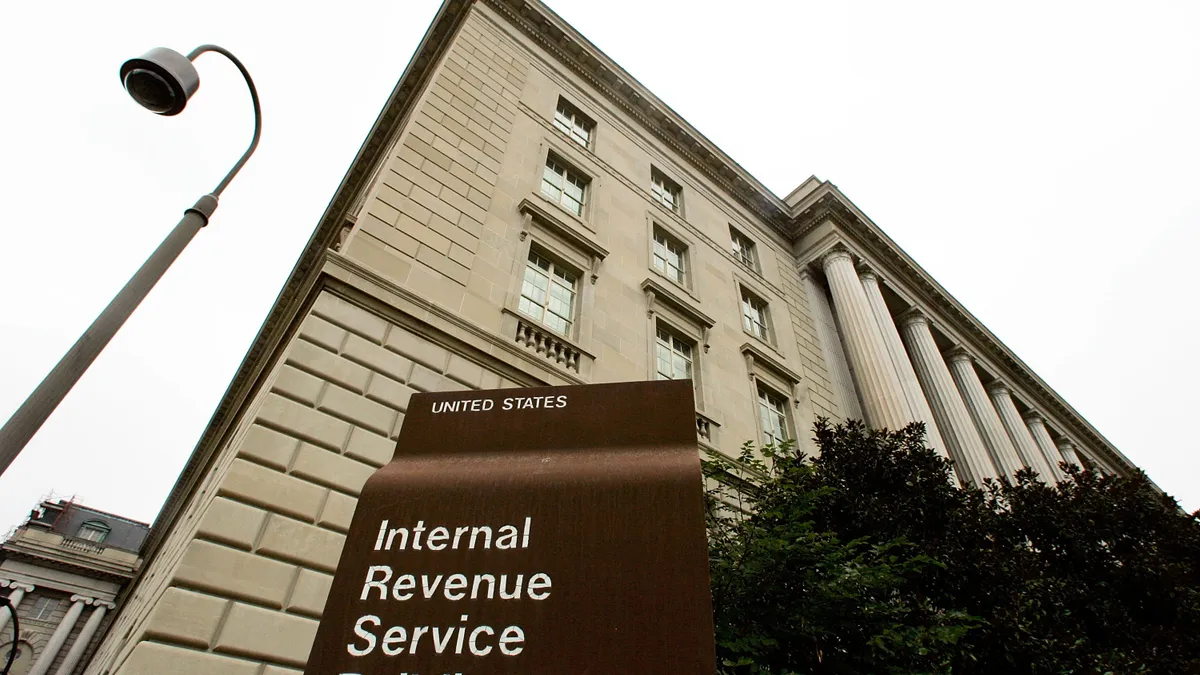Dive Brief:
- The U.S. Treasury and IRS announced plans Monday to halt a “shell game” by large, complex partnerships that shift the tax basis from assets not eligible for depreciation to those that can yield a deduction. Ending the tax dodge may raise more than $50 billion in extra revenue during the next decade, Treasury said.
- The effort is part of a broad Biden administration crackdown in tax enforcement aimed at ensuring large corporations, partnerships and wealthy individuals pay what they owe, Treasury said, noting that the top 1% of filers annually fail to pay $160 billion in tax.
- “Treasury and the IRS are focused on addressing high-end tax abuse from all angles, and the proposed rules released today will increase tax fairness and reduce the deficit,” Treasury Secretary Janet Yellen said in a statement.
Dive Insight:
Partisan tension over tax policy and IRS funding has flared since Congress in 2022 approved $80 billion in extra funding for the agency as part of the Inflation Reduction Act.
Republican lawmakers this year, in an agreement on spending, pressed President Joe Biden to cut $20 billion in IRS funding. The Treasury and IRS found in a study that a $20 billion rescission would undercut tax revenues by more than $100 billion over the next 10 years.
The Biden administration has requested an extra $104 billion for the IRS beginning in 2026 that would, over a decade, yield roughly $341 billion in added revenue from strengthened operations including enforcement, according to IRS Commissioner Daniel Werfel.
Already, with a funding increase provided under the IRA , the agency expects to increase revenue by $700 billion over a decade through enforcement actions against complex partnerships, “millionaires and billionaires,” and corporations that shield profit and income in the U.S. by moving it to tax jurisdictions abroad, Werfel said.
The basis shifting commonly done by business and wealthy taxpayers has flourished as audit rates fell along with congressional funding that is essential for the IRS to keep up with increasingly complex tax returns, the Treasury said.
Filings by pass through businesses with more than $10 million in assets surged 70% from 2010 until 2019, while the audit rate declined from 3.8% to 0.1% during the same period, according to the Treasury.
“The IRS is accelerating our work in the partnership arena, which has been overlooked for more than a decade and allowed tax abuse to go on for far too long,” Werfel said Monday in a statement.
“We are building teams and adding expertise inside the agency so we can reverse long-term compliance declines that have allowed high-income taxpayers and corporations to hide behind complexity to avoid paying taxes,” he said, adding “billions are at stake.”
Accountants, attorneys and other tax experts have stepped up promotion of basis shifting, Werfel said.
“In essence, basis shifting is a shell game,” he said. “The new guidance is aimed at telling promoters that the IRS considers these transactions inappropriate, and we are bringing new Inflation Reduction Act resources into play to beef up our compliance work.”
Along with several Republicans, Sen. Mike Crapo from Idaho has criticized the IRS for requesting additional money while showing limited progress in improving operations such as serving taxpayers. Crapo is the ranking member on the Senate Finance Committee.
Democrats have said that their GOP opponents seek to shield the wealthy from the IRS.
Corporate taxation “is shot through with loophole after loophole after loophole,” Sen. Elizabeth Warren, a Massachusetts Democrat on the finance committee, said Monday in a speech.
Facing the prospect that the IRS will crack down on tax dodgers, Warren said, “wealthy tax cheats must be sweating because the IRS has enough money to enforce the law.”













